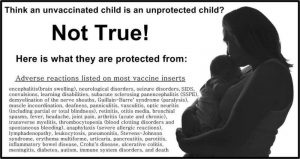
Need to Detox?
I was reading an informative advertisement at https://offers.myersdetox.com/dailydetox/ for a detox formula. Quite a good product. It has 39 ingredients in it, only 3 or 4 of which are not in my 69 ingredient NutriBlast Detox blend. And of course all of those are in my 208 ingredient NutriBlast Greens+.
https://www.healthelicious.com.au/Nutri-Blast-Detox-Blend.html
Dandelion Leaf Blocks Spike Protein
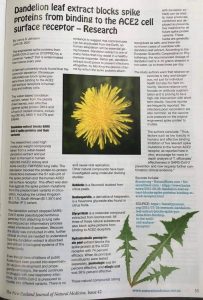
To aid those coerced into getting the jab I have done my best to compile a Jab Recovery Protocol from the various sources I have seen recently:
A twenty year timeline of Big Pharma preparing for the Smallpox Bio Attack
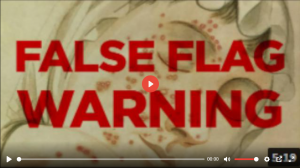
Why all the effort and money into something that was eradicated in 1979?
https://www.bitchute.com/video/NiifLMSecrI9/
And here is a potential solution: https://www.tomgrimshaw.com/tomsblog/?p=35767
Rediscovered Native American remedy kills poxvirus

An old herbal remedy for treating smallpox that is thought to have been used by native Americans in the late 1800s has been rediscovered and found to kill the poxvirus. Smallpox has been eradicated, but the finding offers a possible treatment for poxvirus in the unlikely event of a bioterror attack or increased incidence of similar poxviruses such as monkey pox.
Smallpox ravaged human populations for thousands of years, but in 1796 Edward Jenner discovered that exposure to cowpox lesions could provide immunity to smallpox. This led to the creation of the first vaccine for a disease. It took some time, but in 1979 the World Health Organization officially declared that smallpox had been eradicated.
An extract of the pitcher plant Sarracenia purpurea halted viral replication
Historical sources suggest that in the 1800s, when smallpox still posed a serious threat, the Micmac native Americans of Nova Scotia treated the disease using a botanical infusion derived from the insectivorous plant Sarracenia purpurea, a species of pitcher plant.
Now, Jeffrey Langland at Arizona State University in Tempe, US, and colleagues have conducted in vitro experiments with the herbal extract and found it inhibits replication of the variola virus, the causative agent behind smallpox.
Although, natural smallpox no longer poses a health threat, there is a remote possibility that unstable states or terrorist groups could have acquired stocks of the virus following the collapse of the Soviet Union, which had developed smallpox as a biological warfare agent.
Vaccinations are still administered to at risk groups including researchers working with poxviruses and members of the US military who could potentially be exposed to the virus through biological warfare. But since the risk is so low for populations at large, it is hard to justify vaccinating everyone, particularly because the vaccine can have serious side effects. Developing therapies is therefore important in order to treat people if a bioterror event does occur.
’There is much scepticism on herbal medicine but what our results illustrate conclusively is that this herb is able to kill the virus and we can actually demonstrate how it kills the virus,’ says Langland. ’It takes this herb out of the realm of folklore, and into the area of true scientific evidence.’
The team made extracts of S. purpurea and found that it was highly effective at inhibiting the replication of the virus in rabbit kidney cells. They then looked at the replication cycle of the virus and found that the herb inhibits mRNA synthesis, halting production of proteins vital for replication. ’Other drugs are being developed against smallpox, but S. purpurea is the only known therapy that will target the virus at this point in the replication cycle,’ says Langland.
’The extract blocks early transcription appearing to have a distinct mechanism of action from that of two other antivirals currently in clinical trials,’ says Mark Buller, a virologist at Saint Louis University, Missouri, US. ’The results are very compelling, and support the need to further evaluate the purified active ingredient in small animal studies.’
’With smallpox, it is obviously impossible to see if this herb is effective in the human body unless a bioterror release of the virus occurs,’ says Langland. ’We are in the process of doing animal studies to confirm our results in at least this type of whole animal system.’
The End Of The Covid Jab
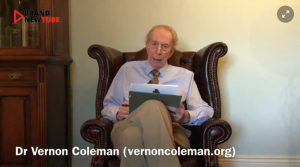
The latest issue of the medical Journal Circulation destroys the jab credibility.
Gibraltar, the most vaccinated region on Earth, cancels Christmas amid COVID19 spike
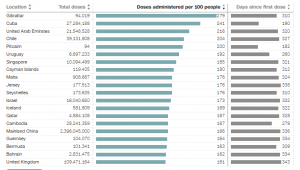
In the latest case of “safe and effective”, the most vaccinated region in the world, where virtually the entire population has not only received both of the so-called COVID vaccinations, but the third booster shot as well, Gibraltar has cancelled Christmas.
The government of the essentially 100% vaccinated region (plus 100% booster shots) has called upon the public to “exercise their own judgement”, they have “strongly” advised against any social events for at least the next four weeks, discouraging people from holding private Christmas events.
Forecast Need

Covid Ends 2025
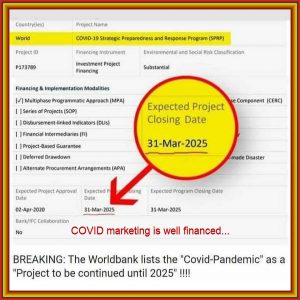
Or when we collectively act to nullify their plan.
Stop Letting News Infect Your Mind
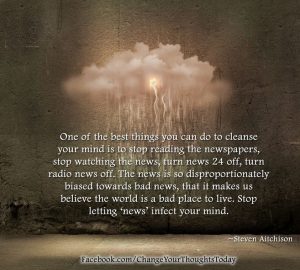
One of the simplest and most effective strategies to raise your happiness level.
